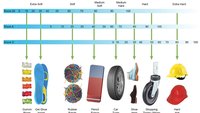well at the end of it all I own the house and I live in it,in fact I would own everything I got, you would be suprised how many old fucks live like that, you would be suprised how little $ you need when you own everything …50% of yearly wage is fine
buddy sold out to a multinational and mostly retired except for his directorship at the CU so he don't dig holes anymore and besides he is broadly diversifyed in owning other things which is btw a key principal and so … we ski a lot
I sold out to move towns [HTML_REMOVED] chase tail so in the process I caught the high point/missed a severe RE downturn up here, I left ALL the money in cash cuz I was stoned/drunk/forget to reinvest so in the process I missed the stockmarket crash
So I'm either a fucking financial genius or financial geniusdom has become really just that random
Not everyone is in your position. Younger people such as my self haven't worked for decades to build up equity. Housing, throughout BC even, is quite expensive so its difficult to enter, if even wise at this point.
and Heckler, yes I have investments because I know savings accounts basically do nothing. However, to earn an equivalent return on your money that you would have 10 years ago with higher interest rates, one needs to make riskier and riskier investments, in what would be considered quite a volatile market.
I agree with what Kram is saying.







